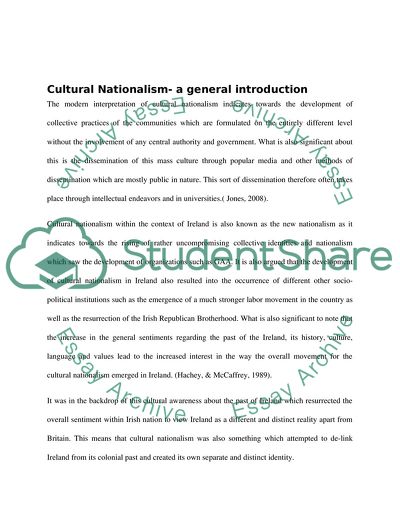Cite this document
(Why Was There a Burst of Cultural Nationalism in Ireland in the Late Coursework, n.d.)
Why Was There a Burst of Cultural Nationalism in Ireland in the Late Coursework. https://studentshare.org/history/1743367-why-was-there-a-burst-of-cultural-nationalism-in-ireland-in-the-late-nineteenth-century
Why Was There a Burst of Cultural Nationalism in Ireland in the Late Coursework. https://studentshare.org/history/1743367-why-was-there-a-burst-of-cultural-nationalism-in-ireland-in-the-late-nineteenth-century
(Why Was There a Burst of Cultural Nationalism in Ireland in the Late Coursework)
Why Was There a Burst of Cultural Nationalism in Ireland in the Late Coursework. https://studentshare.org/history/1743367-why-was-there-a-burst-of-cultural-nationalism-in-ireland-in-the-late-nineteenth-century.
Why Was There a Burst of Cultural Nationalism in Ireland in the Late Coursework. https://studentshare.org/history/1743367-why-was-there-a-burst-of-cultural-nationalism-in-ireland-in-the-late-nineteenth-century.
“Why Was There a Burst of Cultural Nationalism in Ireland in the Late Coursework”. https://studentshare.org/history/1743367-why-was-there-a-burst-of-cultural-nationalism-in-ireland-in-the-late-nineteenth-century.


